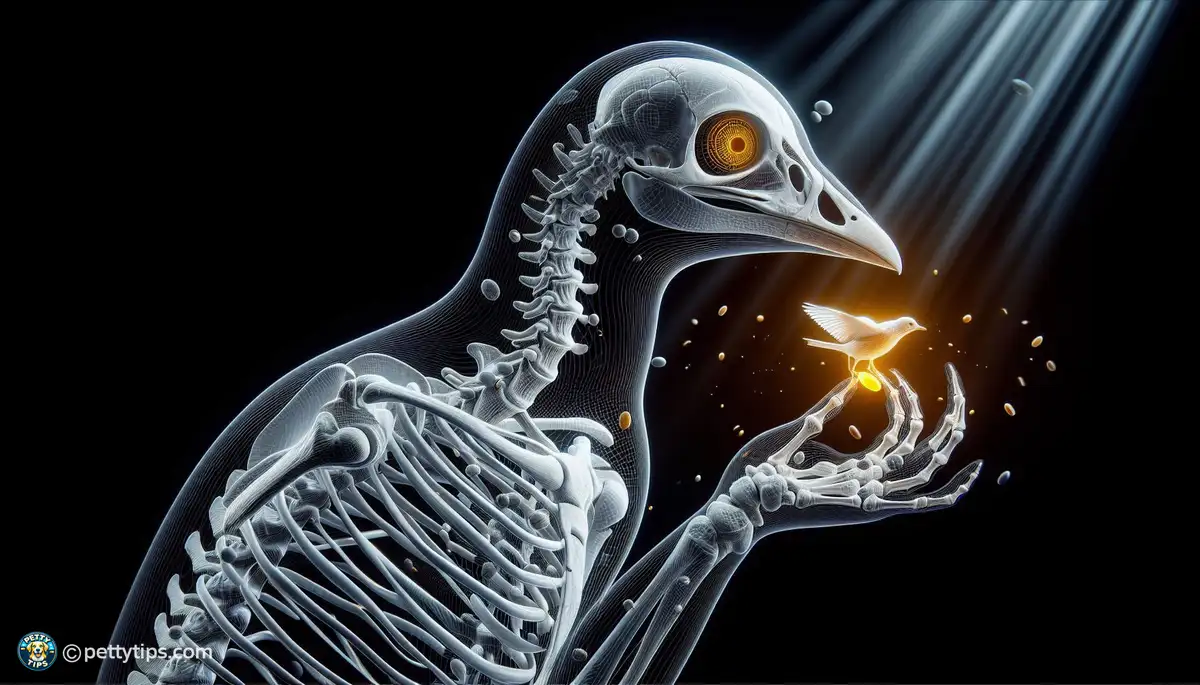
Choosing the Perfect Cage Size for Your Feathered Friend
Jeffrey Oxendine - Sep 08, 2024 - 6 min read


Ensuring your bird’s diet is rich in essential nutrients like calcium and vitamin D is crucial for their overall health and well-being. Calcium plays a vital role in maintaining strong bones, eggshell formation in breeding birds, muscle function, and nerve transmission. On the other hand, vitamin D aids in the absorption of calcium from the digestive system and helps regulate calcium levels in the blood. Together, these nutrients work synergistically to support various physiological functions in your feathered friend.
It’s essential to recognize the signs of calcium and vitamin D deficiency in birds to address any potential issues promptly. Birds lacking adequate calcium may exhibit symptoms such as brittle or deformed bones, egg binding in breeding females, muscle tremors, and even seizures. Vitamin D deficiency can lead to similar issues, along with skeletal deformities, weakness, and a compromised immune system. Being aware of these signs can help you take proactive measures to ensure your bird’s nutritional needs are met.
A balanced diet is the cornerstone of good health for your bird, and providing a variety of foods rich in calcium and vitamin D is key. Calcium sources include dark leafy greens like kale and collard greens, fortified pellets, dairy products like yogurt (in moderation), and calcium supplements specifically formulated for birds. Vitamin D can be obtained through exposure to natural sunlight (UVB rays), fortified foods, and vitamin D supplements. It’s essential to offer a diverse range of foods to ensure your bird receives all the nutrients they need to thrive.
Maintaining the correct calcium-to-phosphorus ratio is critical for optimal calcium absorption in birds. Phosphorus competes with calcium for absorption in the digestive tract, so an imbalance can hinder calcium uptake, leading to deficiencies. Ideally, the calcium-to-phosphorus ratio should be around 2:1 in your bird’s diet. Foods high in phosphorus, such as seeds and nuts, should be offered sparingly, while calcium-rich foods should be emphasized.
Sunlight exposure is essential for birds to synthesize vitamin D in their skin. UVB rays trigger the production of vitamin D3, the active form of the vitamin, which is then metabolized in the liver and kidneys to its active form. However, factors such as indoor housing, limited access to natural sunlight, and environmental conditions can affect a bird’s ability to produce an adequate amount of vitamin D. Providing access to unfiltered sunlight or full-spectrum UVB lighting in your bird’s enclosure can help bridge this gap.
Vitamin D plays a crucial role in calcium absorption from the digestive tract. Without sufficient vitamin D, your bird may struggle to absorb calcium efficiently, even if it’s present in their diet. Therefore, ensuring adequate vitamin D levels is essential for maximizing calcium absorption and preventing deficiencies. By addressing both calcium and vitamin D needs simultaneously, you can optimize your bird’s nutrient intake and support their overall health.
Diversifying your bird’s diet with a range of calcium-rich foods ensures they receive ample amounts of this essential mineral. Incorporate foods like broccoli, calcium-fortified pellets, low-fat cheese (in moderation), and cuttlebone or mineral blocks into their daily meals. This variety not only provides essential nutrients but also adds enrichment to their diet, keeping them mentally stimulated.
Allowing your bird access to natural sunlight, when possible, is beneficial for vitamin D synthesis. If outdoor exposure isn’t feasible, consider investing in full-spectrum UVB lighting for their enclosure. Position the light source appropriately to mimic natural sunlight patterns and ensure your bird receives adequate exposure without overheating or discomfort.
Regularly assess your bird’s dietary intake and observe their behavior and health status. If you notice any signs of calcium or vitamin D deficiency, consult with a avian veterinarian to determine the best course of action. They may recommend dietary adjustments, supplements, or additional measures to address specific nutritional needs and support your bird’s overall well-being.
Ensuring your bird’s diet is well-balanced and provides adequate levels of calcium and vitamin D is essential for their health and vitality. By understanding the importance of these nutrients, recognizing signs of deficiency, and implementing strategies to optimize their intake, you can help your feathered friend thrive. Remember to offer a diverse range of calcium-rich foods, provide access to natural sunlight or UVB lighting, and monitor their dietary intake to ensure they receive the nutrients they need to lead a happy and healthy life.